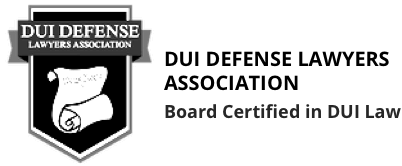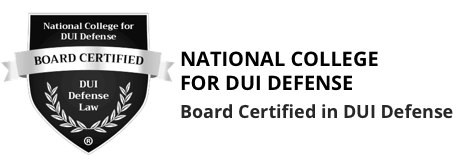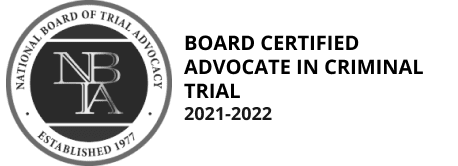If you have been charged with assault in Houston, Texas, contact Mark Thiessen, assault attorney in Houston, at 713.864.9000 or to request a free case evaluation. We serve Houston and the surrounding areas and are available 24/7 to fight for you.
When assault charges suddenly disrupt your life, the weight of potential consequences can feel crushing. The reality is stark: if you are facing assault charges, you need a Houston assault attorney to look at your case as soon as possible, because what happens next will determine your future for years to come.
If convicted, you’re facing expensive fines and jail time — assault cases can carry sentences up to life in prison. Beyond the immediate legal consequences, an assault conviction follows you long after you’ve served your time, affecting your employment opportunities, housing prospects, professional licenses, and even immigration status.
The confusion, the anxiety, the uncertainty about what comes next can be overwhelming, but facing assault charges in Texas doesn’t mean you’re already guilty. Mark Thiessen, top criminal defense attorney and founder of Thiessen Law Firm, is Board Certified in Criminal Law and has extensive experience crafting trial-tested defense strategies that produce case dismissals and Not Guilty verdicts.
Call us today at (713) 864-9000 to schedule your free consultation and put our experienced assault defense team to work for you. We’re available 24/7 because we know that assault charges don’t wait for business hours — and neither should your defense.
Mark Thiessen is a criminal defense all-star. If he can’t get you a win, nobody can.
I’ve worked with Mark and his team on two very different cases, and both times I’ve been blown away by the level of honesty, strategy, and respect that Thiessen Law Firm brings to the table…
Posted by Adam, an Assault Client
View More Testimonials
What qualifies as assault in Texas?
Assault charges in Texas range widely in severity — from misdemeanors to felonies — and the penalties can increase significantly depending on the nature of the offense, the identity of the alleged victim, and whether the assault involved domestic violence or a violation of a protective order. For example, enhanced penalties apply if the alleged victim is a public servant or elderly individual, or if the assault is considered family violence.
Under the Texas Penal Code § 22.01, a person can be convicted of assault if they:
- Intentionally, knowingly, or recklessly cause or threaten bodily injury to another person
- Intentionally or knowingly cause physical contact with another person when they know that person will find the contact offensive or provocative
Here are the most common types of assault charges in Texas:
- Simple assault: This is the least severe assault charge. It typically involves unwanted physical contact that doesn’t result in injury but is considered offensive or threatening. Depending on the circumstances and the accused’s criminal record, it can be charged as a misdemeanor or a felony.
- Aggravated assault: This charge applies when someone causes serious bodily injury or uses/exhibits a deadly weapon during the assault. Aggravated assault is charged as a second-degree felony, or a first-degree felony if the circumstances are particularly severe.
- Sexual assault: Also known as rape, sexual assault involves nonconsensual sexual contact involving penetration. It is generally charged as a first-degree felony, carrying a potential prison sentence of 5 to 99 years.
- Assault domestic violence: Often referred to as domestic violence, this charge involves assault against a family member or someone living in your household. Penalties vary widely depending on the circumstances, including the age of the victim and prior convictions.
- Intoxication assault: A form of assault that occurs when someone operates a vehicle while intoxicated and causes serious bodily injury to another person. This is a third-degree felony, punishable by 2 to 10 years in prison.
- Assault on a public servant: In Texas, assaulting someone who is performing a governmental function — such as a police officer, judge, postal worker, or juror — is automatically charged as a felony.
The breadth of Texas assault laws means that what might seem like a minor altercation can quickly escalate into serious criminal charges with life-altering consequences. At Thiessen Law Firm, we understand that every assault case is unique, and the right defense strategy can make all the difference between a conviction that haunts you for life and a future where you can move forward.
Penalties for assault charges in Texas
So, exactly how serious is an assault charge in Texas? The answer depends entirely on the specific circumstances of your case, and the severity escalates quickly based on factors like whether the assault involved assault bodily injury, assault with a deadly weapon, or the assault was committed against protected individuals like public servants or family members.
Here’s what penalties to expect by class:
| Offense | Charge | Maximum Fine | Jail time |
| Simple assault | Class B misdemeanor | $2,000 | Up to 180 days |
| Simple assault | Class A misdemeanor | $4,000 | Up to 1 year |
| Felony assault | State jail felony | $10,000 | 180 days – 2 years |
| Felony assault | Third-degree felony | $10,000 | 2 – 10 years in prison |
| Aggravated assault | Second-degree felony | $10,000 | 2 – 20 years in prison |
| Aggravated assault | First-degree felony | $10,000 | Life in prison |
These penalties represent only the immediate legal consequences of a conviction, but the long-term collateral damage extends far beyond jail time and fines. An assault conviction becomes a permanent stain on your criminal record that can derail your employment prospects, limit housing opportunities, jeopardize professional licenses, and create immigration complications for non-citizens.
The reality is that this conviction will follow you for decades, often proving more devastating to your future than the original jail sentence or fine you served.
Learn more: How much is bail for assault?
NOT GUILTY
Texas v. T.J.
Harris County No. 2
10/16/15
Interference with Emergency Call (Class A Misd). Client was a doctor going through a divorce with his wife who was a professional actress (Predatory Moon and Hit Women). He had already filed a case against her for Assault after she broke his jaw. The 911 call was all her screaming and crying. You never heard his voice or any loud banging or anything. I even had pictures of him at the clinic from their surveillance cameras at the time of the call. Additionally, I had two witnesses that remember him at the clinic at the time of the 911 call. The wife refused to even show up to testify and asked the DA to dismiss it. So why did this case even go to trial??? Because of One DA. Others wanted to dismiss it. This DA was so overzealous and irrational that he made his number 3 try it with a 911 tape and only one of the three investigating officers. Honestly, he was abusing his power as a DA. Luckily, the Honorable Judge Bill Harmon granted a directed verdict after their case in chief and put a stop to all this nonsense. After the jury was excused, one juror came around the box and walked straight up to the DA wanting to ask questions. The juror was taken back to the jury room and both the State and I went back to talk with them. The jurors were furious that the State would even waste tax payer money on a case like this. And, it could’ve cost my client his medical license. All because of One DA. It’s scary the power a DA can abuse. I hope HCDAO takes a look at his actions and reconsiders whether he is a positive reflection for their team. Thank you, thank you to Judge Bill Harmon for bringing justice into this situation. You are greatly appreciated.
How to beat an assault charge in Texas
Facing assault charges doesn’t automatically mean you’re destined for conviction — with the right defense strategy, many charges can be dismissed, reduced, or beaten at trial. Here’s how your assault attorney in Houston from Thiessen Law Firm might argue against your charges:
Alleging self-defense
Assault doesn’t happen in a vacuum. If you were attacked or threatened by your accuser prior to striking or injuring them, you and your lawyer may be able to allege self-defense by working with witnesses, analyzing evidence, and even working with reconstructionists, analysts and other expert witnesses who can help a jury understand what truly happened in your case.
Texas law strongly protects your right to defend yourself when facing imminent harm, and at Thiessen Law Firm, we’ve successfully argued self-defense in cases where our clients were initially portrayed as aggressors by meticulously reconstructing the events and demonstrating that our client was actually the victim who had no choice but to defend themselves.
Alleging defense of property
Similarly to defense of self, if someone was attempting to invade your home or steal/damage your property in a way that required reasonable force to stop, your attorney can use these conditions to craft a defense.
Texas law also extends this protection to defense of others, including family members, friends, or even strangers who are facing imminent harm. This defense can be particularly effective in domestic violence situations where one family member intervenes to protect another, or in cases where someone steps in to help protect property or prevent a crime.
Disproving key elements of the accusation
In order to be convicted of a crime, the prosecution must prove beyond a reasonable doubt that you committed the offense you are accused of. With that burden of proof, the details matter. Inconsistent stories, bad witnesses, and shaky evidence are all things an experienced defense attorney can identify and call into question when defending your case in court. Whether it’s a first-time assault charge in Texas or a repeat offense, we excel at finding the gaps in the prosecution’s case and highlighting them to create reasonable doubt.
Collecting evidence and working with experts
In serious assault cases, sometimes the most critical work is done outside the courtroom. A quality Texas assault lawyer will work with you to analyze the conditions of the incident, returning to the scene of the alleged offense, searching for any video/audio recordings or eyewitnesses, and working with esteemed experts to analyze/reconstruct elements of the accusation. At Thiessen Law Firm, our comprehensive approach to case preparation has helped us uncover evidence that completely changed the trajectory of our clients’ cases.
Fighting for fairer charges and sentencing
Sometimes a client is guilty, but not of the level of offense the prosecution wants to charge them with. When this happens, it’s vital that your attorney work to reach a fairer agreement with the prosecuting attorney to ensure that you are tried fairly for your offense. Additionally, the statute of limitations on assault in Texas is generally two years — if the prosecution fails to file charges within this timeframe, your case must be dismissed regardless of the evidence against you.
Assault charges in Texas — FAQs
What is a simple assault charge in Texas?
A simple assault charge in Texas occurs when someone intentionally, knowingly, or recklessly causes bodily injury to another person, makes threats of imminent bodily harm, or engages in offensive physical contact.
These charges typically range from Class C misdemeanors (for threats or offensive contact without injury) to Class A misdemeanors (for minor bodily injury), with penalties ranging from fines up to $500 to jail time up to one year.
How can assault charges be dropped in Texas?
Assault charges can be dropped in Texas through several routes. The prosecutor may dismiss charges due to:
- Insufficient evidence
- Witness problems
- Constitutional violations discovered by your defense attorney
A skilled lawyer for assault cases can also negotiate with prosecutors to have charges reduced or dismissed entirely, especially if they can demonstrate weaknesses in the state’s case or show that you were acting in self-defense. Additionally, charges may be dropped if the alleged victim recants their statement or refuses to cooperate with prosecution.
Can an assault charge be expunged in Texas?
An assault charge can be expunged in Texas, but only under specific circumstances — primarily when you were not convicted of the offense. If your assault charges were dismissed, you were acquitted at trial, or you were arrested but never formally charged, you may be eligible for expungement. However, if you were convicted of assault, even through deferred adjudication, you typically cannot get the charge expunged, though you may qualify for an order of non-disclosure that seals the record from most background checks.
Continue reading: Can you get assault charges expunged?
Meet with a top assault attorney in Houston
When assault charges threaten to derail your future, you need more than just any lawyer — you need a Houston assault attorney with the experience, credentials, and track record to fight for your freedom.
Mark Thiessen, founder of Thiessen Law Firm, is Board Certified in Criminal Law by the Texas Board of Legal Specialization, a distinction held by less than 1% of Texas attorneys. Whether you’re facing aggravated assault, domestic violence assault, or any other assault-related charge, Mark Thiessen and the team at Thiessen Law Firm are available 24 hours a day, 7 days a week to ease your concerns and protect your freedom.
Don’t let prosecutors intimidate you into accepting consequences you don’t deserve — call (713) 864-9000 today for your free consultation and put our proven assault defense strategies to work for you.
Call Thiessen Law Firm today at 713.864.9000 or contact us online for a free consultation.














